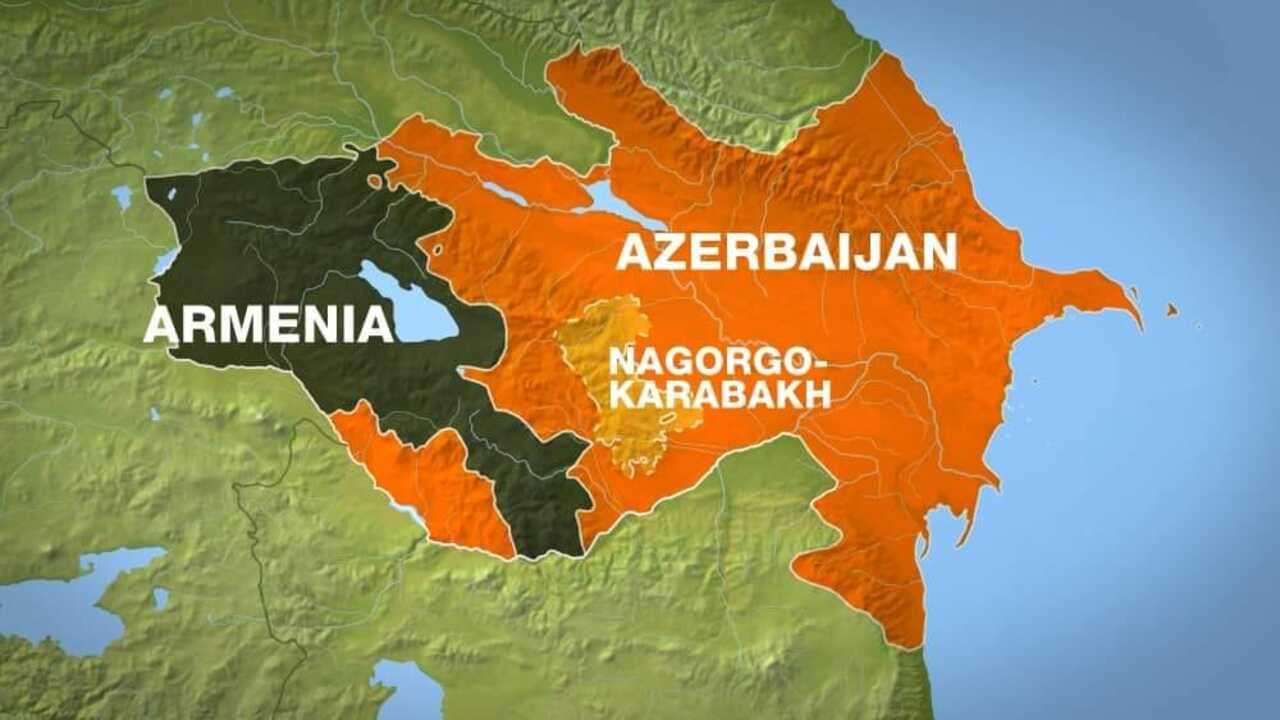
All this has once again resulted in today’s armed confrontation, which Kremlin (the constant beneficiary of “frozen conflicts” in the region) tries to use for its own purposes. Moscow portraying itself as a “peacemaker” and “mediator” in resolving conflicts, in fact has repeatedly “stirred” or fanned their flames.
Difficult relations between Armenia and Azerbaijan are no exception. Earlier this summer, armed confrontations occurred in the border areas near Nagorno-Karabakh, and there were victims on the both sides. The situation escalated into a diplomatic incident, when Azerbaijan accused Serbia of selling weapons to Armenia. Since then, the international experts have warned of the possibility of further escalation.
The new cycle of violence, this time much more serious, broke out on the night of September 27. In fact, it is a question of resumption of a wide-scale armed conflict between Armenia and Azerbaijan where they announced military mobilization. As of today, the number of casualties among the military on both sides has exceeded 2,000 (according to the Ministries of Defense). A lot of equipment and aircraft have been shot down
The peculiar feature of today’s Armenian-Azerbaijani confrontation is the international support architecture of players involved directly or indirectly. There is evidence that Pakistani and Syrian fighters have been transferred to the conflict region on the side of Azerbaijanis and Syrian Kurds on the side of Armenians. In addition, the presence of Wagner militants of the Russian military intelligence was recorded. According to international policy expert Ilya Kusa, Azerbaijan was openly supported by Pakistan and Turkey, and Armenia by Greece, France and "Francophone" states. Russia, on the other hand, faces the dilemma of maintaining the South Caucasus security architecture built in the 1990s (Armenia is a member of Russia's CSTO collective security system) or accepting Turkey's claims that it will strongly help Azerbaijan. Turkey is trying to win a military victory in Karabakh, the analyst said, and to enter, preferably, a bilateral format of talks with Russia.
There is evidence that Pakistani and Syrian fighters have been transferred to the conflict region on the side of Azerbaijanis and Syrian Kurds on the side of Armenians. In addition, the presence of Wagner militants of the Russian military intelligence also was recorded. According to the international policy expert Ilya Kusa, Azerbaijan was openly supported by Pakistan and Turkey, and Armenia secured support from Greece, France and other “Francophone” states. Russia, on the other hand, faces the dilemma of either maintaining the South Caucasus security architecture built in the 1990s (here we should mention that Armenia is a member of Russia’s CSTO collective security system) or accepting Turkey’s claims that stands ready to help Azerbaijan. The analyst believes that Turkey is trying to achieve a military victory in Karabakh, and to start talks with Russia on a bilateral basis.
The France's position is somewhat synchronous with its views on the situation in Libya: it is closer to Russia’s approach and is aimed at preventing the strengthening of Turkey in the region. Interestingly, the Armenian Prime Minister Nikol Pashinyan openly refused the Kremlin’s mediation in the conflict resolution. Apparently, the Armenian political leadership, despite its ally status, is gradually realizing that Moscow having obtained this role will soon abuse it for its own political agenda. The parties of the conflict also ignored the call of the emergency UN Security Council to cease hostilities.
According to Ukrainian diplomat Roman Bezsmertny, Russia is still interested in escalating the conflict, given that it has been “flooding” the region with weapons for a long time (Serbia, as it was mentioned above, acted in the same way). Moscow has concentrated here huge armed forces of the south-western operational command. The diplomat believes that the situation in Karabakh can be used by Moscow to move further to Iran.
The Ukrainian reaction to these events is complicated by a number of factors. On the one hand, we have a large Armenian national minority, which has a similar traumatic experience of genocide in the twentieth century, which Armenia intends to gain the world recognition for, just like us. On the other hand, Azerbaijan and Turkey are recognized at the level of official documents of Ukraine as our important strategic partners.
In addition, Armenia, being Russia’s ally, does not support on international platforms the position of the vast majority of countries concerning the annexation of Crimea. All this led to official statements of Kyiv to support the territorial integrity of Azerbaijan (which is also supported by most countries, and even Armenia has not officially recognized the independence of Artsakh, though, carrying out active economic and political activities there).
The situation in Karabakh is of great geopolitical importance for Ukraine (it may be sufficient to refer to Kyiv’s interest in energy resources in the region, and the intensification of the GUAM project). In addition, it is important that this confrontation is not used by Moscow to confirm its reputation as an effective mediator in resolving conflicts in order to win brownie points with the major international players. After all, experience shows that such an image created by the Russian political leadership has never been true.
Pavlo Lodyn
The views expressed in this paper are those of the author and do not necessarily reflect the views of the editorial staff.